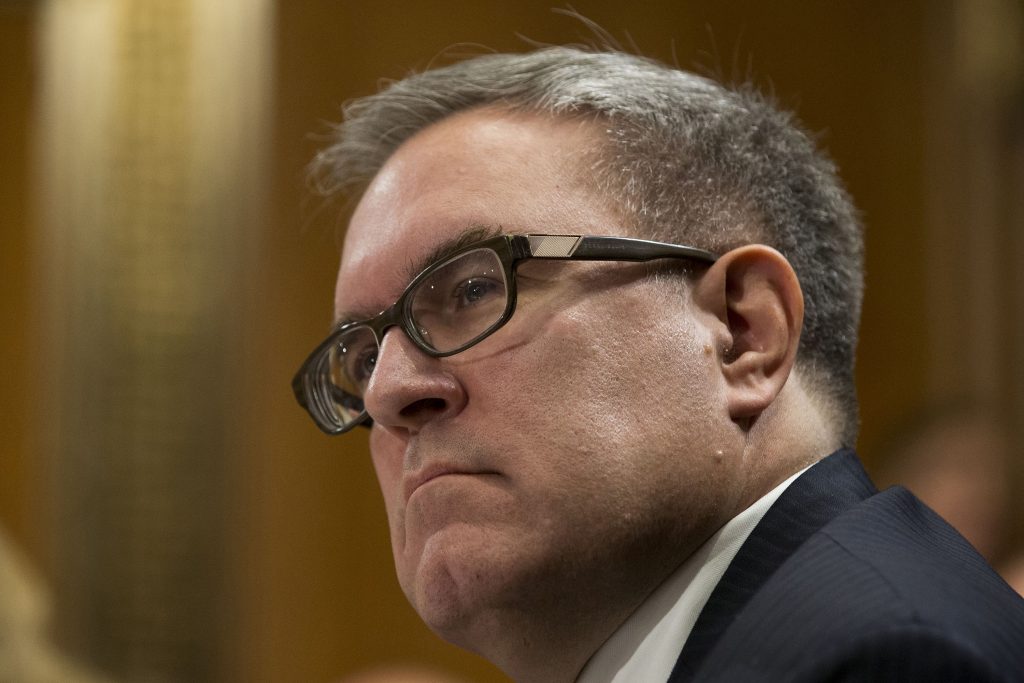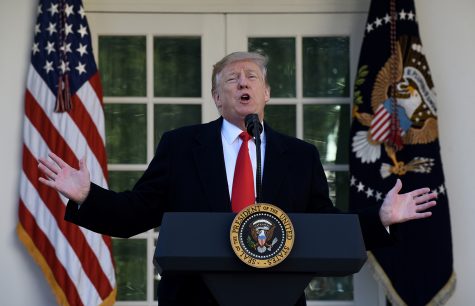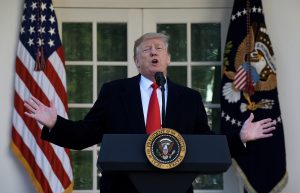Helton: The Environmental Protection Agency no longer protects the environment
Pollution enforcement is down, but the EPA chief claims “progress” is being made.
Andrew Wheeler during his confirmation hearing to be Deputy Administrator of the Environmental Protection Agency before the United States Senate Committee on the Environment and Public Works on Capitol Hill on Nov. 8, 2017 in Washington, D.C. (Alex Edelman/CNP/Zuma Press/TNS)
February 6, 2019
It’s not all clear skies at the Environmental Protection Agency.
I’ve written before about the EPA’s massively harmful deregulation moves and unsustainable politics. I could write more about acting Chief Andrew Wheeler’s deep ties to coal lobbying, or that when it comes to human impact on the climate, he said, “What’s not completely understood is what the impact is.”
But let’s give Wheeler a little bit of a break and focus on the bigger picture for the agency he oversees. Specifically, let’s look at two main problems the agency has that keep it from doing the job it was founded to do.
RELATED: Helton: The new EPA plan could devastate Iowa, but not without a fight
The most important challenge the EPA faces isn’t planning policy, but carrying out those plans.
Enforcement of environmental regulations can be tough, especially when those violating them have a plethora of methods to get around the rules. Thankfully, the agency is afforded a large team of agents in its Criminal Investigation Division to handle such a heavy caseload. The Pollution Prosecution Act of 1990 sets the legal minimum of the division at 200 agents. There’s only one problem with this statute: The EPA isn’t following it. The CID currently employs fewer than 150 special agents to fight environmental crime.
This isn’t a tweak in the system. This isn’t a couple empty desks. The EPA is understaffed, and it’s hurting all of us.
This leads right into pollution prosecution, the agency’s second main problem. You know, that law passed during the George H.W. Bush administration in 1990 that’s no longer being followed? Yeah, that one. It might not seem like a huge deal at first glance. After all, there’s still well over a hundred agents working for the CID. How bad could it be?
The EPA obviously lacks the seriousness to tackle the threats to our environment and our climate.
Running through the numbers, it doesn’t look like a banner year for the EPA. There were approximately 400 anti-pollution cases referred to the Justice Department in 2011. There were just 162 last year. Out of those relatively few cases, only 62 resulted in a conviction. This makes sense when there aren’t enough people hired to handle all the investigations necessary to enforce environmental regulation.
RELATED: Helton: EPA needs a plan that withstands inconsistent politics
It’s important to note that this is the tail of a downward trend in prosecution referrals, with the total dropping steadily since 2011, through the rest of the Obama administration, and to the present day. However, the current Trump administration has cut these levels to lowest since the Pollution Prosecution Act was enacted.
The EPA put out a statement in January about the declining rate of referrals in the context of Fiat Chrysler’s recent case settlement over emission tests. “While our overall number of case conclusions declined slightly … EPA is continuing to direct its resources to the most significant and impactful cases.”
Its rationale is that major cases, such as the one with Fiat Chrysler, outweigh the significance of a smaller case. I agree that more attention to be paid to the largest contributors to pollution and climate change, but ignoring everyone but the most principal players isn’t a worthwhile tradeoff. If the CID simply had more employees, the agency could do more to stop violations of all kinds.
The EPA obviously lacks the seriousness to tackle the threats to our environment and our climate. If it can’t comply with the simplest of statutes, how could we expect it to handle its job competently?





















